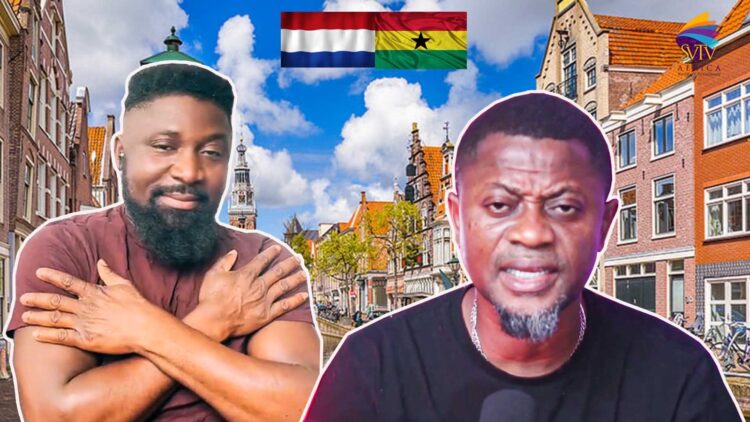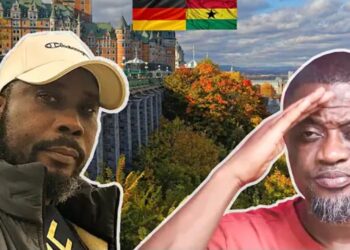Attah a.k.a. Big Boss: A Ghanaian Abroad Reflects on Life in the Netherlands
Attah, known by many as Big Boss, is a Ghanaian who has lived in the Netherlands for nearly two decades. His story is one of perseverance, sacrifice, and deep reflection—especially for those considering traveling abroad.
“I told myself I would only spend ten years abroad,” Attah says, “but here I am, almost twenty years later, still trying to find my way out.”
Many people in Ghana believe that traveling abroad is the key to success. But Attah warns:
“Abrokye (life abroad) is not paradise. It’s a place you’ve never seen, but once you get there, you realize it’s not what you thought.”
He emphasizes that if you’re coming to Ghana, come prepared.
“In Europe, insurance covers your health. In Ghana, it doesn’t work like that. Start saving now. Life here can humble you.”
“Life abroad moves fast,” he says. “Before you know it, 20 years have passed and it feels like 2. People spend their youth chasing papers and jobs, and by the time they stop to look back, they’ve lost precious time.”
Attah shares that many Ghanaians in the diaspora end up lonely, without family or strong support systems. “I almost missed the chance to start a family,” he confesses.
Attah shares heartbreaking stories of broken marriages and lost relationships.
“Many of us got married and had children, and now we can’t leave because of our families here. If you’re lazy and come abroad, you’ll lose your drive. Before you realize it, you’ve aged, and your dreams are still on hold.”
He recalls people who sold their properties in Ghana to fund their travel, only to live in single rooms abroad while paying rent, water, and light bills back home—hoping to return one day.
“One man I know went back to Ghana just to ‘do connection’ and come back abroad again. Others have brought women here, only to be left alone once they got papers.”
“Abroad, most people can’t talk about their problems,” Attah explains. “There’s no one to confide in, so people go mad quietly. I’ve seen strong people fall apart. Some even start taking psychiatric medication. Abroad is not just about money. It drains your mind and spirit.”
He warns that people who travel without proper documents often suffer silently.
“Even women who work hard to support their families go through tough times. Many end up lonely, heartbroken, and sick.”
Attah shares his own challenges with immigration:
“I came to the Netherlands in 2002, but I didn’t get my papers until years later. The laws kept changing. At one point, my wife and I were told to leave with our child. My son was 7 at the time.”
He reflects on how hard it is to predict your future when your residency is uncertain. “One day the law changes, and just like that, your life is on hold again.”
“I wish I had stayed in Ghana,” he admits. “But I had no family there, and no job prepared for me.” He shares that people are often poor in Ghana and remain poor even abroad—only that they don’t see it immediately because the money comes fast and goes fast.
“My twin brother took care of my mother when she was ill while I was here looking after my wife. She died without me seeing her. I sent money, but I couldn’t be there.”
Attah has a message for the youth:
“If you are young and determined, you can make it back home. But if you’re lazy and think life abroad will fix your problems, you will be disappointed.”
He also warns against long-distance relationships: “They rarely work. If you have a serious partner in Ghana, settle things before you travel. Many women and men abroad are lonely or have been used and dumped.”
“Abroad is what you make it,” he says. “But it’s better to prepare, get documents, learn a skill, and build a plan before stepping out. If you travel without direction, you’ll waste years.”
He concludes:
“Don’t rush to leave Ghana because of someone else’s success story. Everyone’s journey is different. I’m still here, still trying, but my dream is to return to Ghana and build something lasting.”
Watch The Video Below:

















